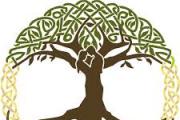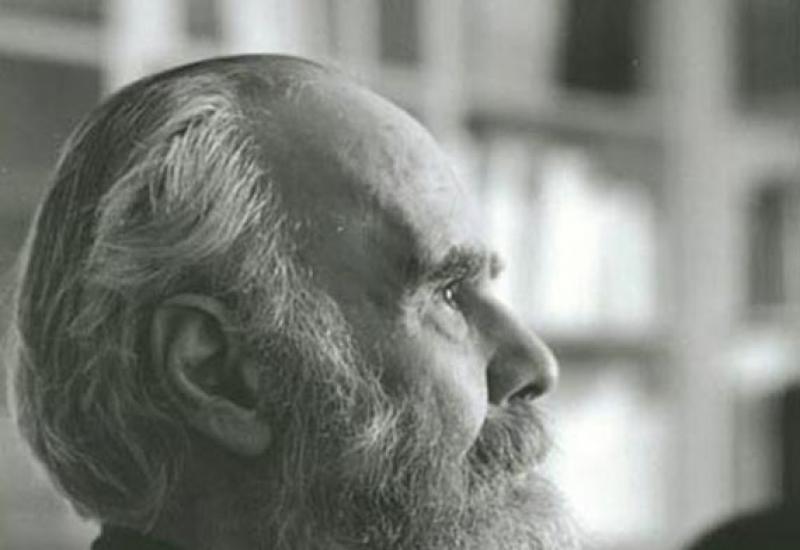Human worldview. Chapter VIII. Formation of worldview and social activity In the worldview sphere, boys and girls are formed
By clicking on the "Download archive" button, you will download the file you need completely free of charge.
Before downloading this file, think about those good essays, tests, term papers, dissertations, articles and other documents that are lying unclaimed on your computer. This is your work, it should participate in the development of society and benefit people. Find these works and submit them to the knowledge base.
We and all students, graduate students, young scientists who use the knowledge base in their studies and work will be very grateful to you.
To download an archive with a document, enter a five-digit number in the field below and click the "Download archive" button
Similar documents
- 1.3 Moral development in youth
- certain relationships to objects and phenomena of the surrounding world;
- worldview;
- behavior (as a manifestation of relationships and worldview). We can distinguish types of education (mental, moral, physical, labor, aesthetic, etc.). 1
- 2 Values and worldview in youth
- 2.1 Formation of worldview in youth
The main mental process of adolescence is the development of self-awareness. Self-concept in early adolescence. The influence of intermediate social status on the psyche. Personal self-determination, development of worldview, value orientations.
abstract, added 11/19/2009
The problem of finding the meaning of life, features and formation of self-concept in adolescence. Organizing a psychological study of the value orientations of modern youth, identifying moral and ideological differences based on gender.
course work, added 12/16/2014
Youth as a psychological age. Personality development in early adolescence. The life path of a person as a problem of psychology. The main types of understanding the meaning of life in youth. Study of value orientations and orientation of boys and girls.
course work, added 04/07/2016
Psychological characteristics of adolescence. Youth as an age stage of mental development. Features of frustration in adolescence. Experience of frustration in adolescence. A study of the experience of frustration in adolescence.
course work, added 09/23/2008
Human values. Internal personality structure, established value orientations. Formation of individual values. Sources of value ideas. Development of values. Individual values. Types of values. Formation of value orientations.
abstract, added 10/15/2008
Characteristics of the psychological nature of friendship and love in adolescence. Building friendships between boys and girls. Psychological assistance in overcoming negative experiences. Diagnosis of the regulation of experiences in adolescence.
test, added 01/22/2015
The formation of personal and professional self-determination in adolescence: dynamics of indicators; value-semantic reflections. Differential diagnosis of personality traits as a factor in motivating the choice of profession and professional orientation.
Youth is the stage of the formation of moral consciousness, the development of value orientations, a stable worldview as a system of views on life, ideals, and civic qualities of the individual. This is the final stage of primary socialization, the development of a person as an individual and the beginning of his inclusion in the system of social and labor relations. In adolescence, dependence on adults is finally overcome and the independence of the individual is established. Youth is characterized by pronounced social needs.
Introduction. . . . . . . . . . . . . . . . . . . . . . . . . . . . . . . . . . . . . . . . . . . . . . . . . . . . . . . . . 3
1 Youth as a stage of development. . . . . . . . . . . . . . . . . . . . . . . . . . . . . . . . . . . . . . . 5
1.1 Psychological characteristics of adolescence. . . . . . . . . . . . . . . . . 5
1.2 Personal development in youth. . . . . . . . . . . . . . . . . . . . . . . . . . . . . . . . . . . . 8
1.3 Moral development in youth. . . . . . . . . . . . . . . . . . . . . . . . . . . . . . . . . . 10
2 Values and worldview in youth. . . . . . . . . . . . . . . . . . . . . . . . . . . . . . . . 13
2.1 Formation of worldview in youth. . . . . . . . . . . . . . . . . . . . . . . . . . . 13
2.2 Values and value orientations in youth. . . . . . . . . . . . . . . . . . . . . . 16
Conclusion. . . . . . . . . . . . . . . . . . . . . . . . . . . . . . . . . . . . . . . . . . . . . . . . . . . . . . . 20
Glossary. . . . . . . . . . . . . . . . . . . . . . . . . . . . . . . . . . . . . . . . . . . . . . . . . . . . . . . . 22
List of sources used. . . . . . . . . . . . . . . . . . . . . . . . . . . . . . . . . . . 23
Applications. . . . . . . . . . . . . . . . . . . . . . . . . . . . . . . . . . . . . . . . . . . . . . . . . . . . . 24
Introduction
The work contains 1 file
For adolescence, the processes of development of self-awareness and the dynamics of independent regulation of “I” images are especially important. Judging by the available data, all young men begin with a period of a relatively diffuse, vague “I”; this is characterized by the fact that a young man, without making a final choice, in an attempt to “find himself,” tries on various roles, activities, gets acquainted with reality, acquires knowledge and skills in reserve. Socio-psychological and personal self-determination is completed outside of school age, on average between 18 and 21 years old, when a young person begins to perceive himself as a mature personality, as a socially significant individual. During the period of personal development and growth, young people face some difficulties. The first of these is the formation of one’s own image and lifestyle. Young people engage in self-development, choose their social role, become more mature and begin to understand themselves better. Personal development allows you to manage your desires and aspirations. There is a desire to achieve a certain social position, for which you need to master social roles, rules and behavioral characteristics in society. In the course of personal development, boys and girls gradually reach social maturity (learns the norms of society, joins adult life), the onset of which depends on economic and cultural conditions. Living in the present, their inner position is directed to the future, to independent life.
In essence, youth is nothing more than a transition from purely physical maturity to social maturity. Its main content is involvement in “adult” life, assimilation of the norms and rules that exist in society. 1
Moral development is an integral part of a person's education and training during adolescence. A fully developed person must develop the principles of social behavior, mercy, the desire to serve people, show concern for their well-being, and maintain established order and discipline. He must overcome selfish inclinations, value humane treatment of people above all else, and possess a high culture of behavior.
Adolescence is considered a decisive time in the moral development of a person. During this period, many difficulties and problems arise. A stream of vital contradictions between “I want” and “I must,” “I can” and “I can’t,” “for myself” and “for others” falls upon the not yet strengthened moral consciousness. Constantly colliding, these contradictions complicate the moral choice of an individual and can lead to unexpected results: shyness, swagger, consumerism, cynicism, frivolity, etc. 1
Moral control from peers helps to avoid such “unexpected results.” The need to occupy a respected position among comrades causes analysis and self-evaluation of one’s own personality as a condition for successful relationships. The teenager pays special attention to his shortcomings and ways to eliminate them. Thinking about oneself becomes an independent internal process; there is dissatisfaction with oneself and attempts at self-education. All this is spurred on by an analysis of relationships that often do not suit the teenager. Independence in judgments about oneself increases, although self-esteem can be not only inadequate, but also inconsistent. From successful or unsuccessful actions, self-esteem either unjustifiably increases or decreases sharply, and the teenager feels like a worthless person. He evaluates others more objectively than himself.
The role of moral principles in the moral development of boys and girls is great. And this is understandable: the progress of society can only be ensured by people with perfect morality and a conscientious attitude towards work and property. At the same time, great importance is attached to the spiritual growth of members of society, introducing them to the treasures of literature, art, and the formation of high aesthetic feelings and qualities in them. All this, naturally, requires aesthetic education.
Education is the purposeful formation of personality based on the formation of:
At the same time, morality should be defined as the establishment of internal norms of human behavior with the strengthening of conscious motives based on a sense of duty, honesty, and truthfulness.
In terms of moral development, adolescence is also characterized by an expansion of the range of personally significant relationships, which are always emotionally charged (moral feelings, empathy, the need for friendship, cooperation and love, political, religious feelings). This is also associated with the establishment of internal norms of behavior, familiarization with the moral values of society, and violation of one’s own norms is always associated with the actualization of feelings of guilt. In youth, the sphere of aesthetic feelings, humor, irony, sarcasm, and strange associations significantly expands. There is a special interest in problems of morality in youth. Boys and girls respond eagerly and willingly to any proposals to discuss moral problems. They are especially attracted by the conversation about man, about the spiritual qualities of the individual, about the norms of relationships between people.
For youth, building a system of personal moral, cultural, and spiritual values is of particular importance - it allows you to feel yourself, your “I”, more acutely and fully. Therefore, faith, worldview, and ideals acquire a stable form in youth. And although most of these values, of course, are not created by the individual, but are acquired as socio-cultural experience, their understanding and acceptance as individual values create in a young person a sense of his own dignity, “fullness of life,” a sense of self-worth and belonging to it.
The formed system of knowledge, as well as the ideological attitudes, spiritual and moral values, morality, rules of conduct, etc. arising on its basis, are to one degree or another “appropriated” by each member of society and become an essential part of his individual consciousness, in many ways define it. 1
In youth, moral consciousness provides orientation to all phenomena of life and the choice of behavior style. It is at this age that a person either turns to moral cynicism or begins to consciously strive for spiritual growth. Meanwhile, in adolescence, the gap between young people deepens in the sphere of value orientations and claims for recognition, in the ability to reflect and in the sphere of other features that characterize the personality.
It is in his youth that a person makes one of the fundamentally significant choices for himself: to follow the values formulated for himself, applying all his will, all his spiritual strength, or to follow the dictates of emerging passions. In youth, a person is able to give himself an account of what stage of moral orientation he is at: the stage of anomie, when there are no certain norms and values regulating the normative behavior of a person; stages of conventional morality; stages of autonomy, when a person is able to independently create or choose moral rules for his or her orientations in life, independence becomes an essential value.
In Russian psychology, youth is considered as a psychological age of transition to independence, a period of self-determination, acquisition of mental, ideological and civic maturity, formation of a worldview, moral consciousness and self-awareness. 1
Senior school age is the time to develop views and beliefs, to form a worldview. During this period, there is not only an increase in the volume of knowledge, but also a significant expansion of the horizons of the high school student. He has a need to reduce the variety of facts to a few principles. The specific level of knowledge of theoretical abilities, as well as the breadth of interests, is very different among the guys, but certain changes in this direction are observed in everyone - they give impetus to youthful “philosophizing.” Hence the persistent need to search for the meaning of life, to determine one’s own perspective, the existence and development of all humanity.
A characteristic acquisition of early youth is the formation of life plans. A life plan as a set of intentions gradually becomes a life program, when the subject of reflection is not only the end result, but also the ways to achieve it. A life plan is a plan of potentially possible actions. There are a number of contradictions in the content of the plans. The main contradiction in the life prospects of young men and women is their lack of independence and readiness for dedication for the sake of the future realization of their life goals. The goals that future graduates set for themselves, while remaining untested for compliance with their real capabilities, often turn out to be false and suffer from “fantasyism.” Sometimes, having barely tried something, young people experience disappointment both in their plans and in themselves. The outlined perspective can either be very specific, and then not flexible enough for its implementation to be successful; or too general and hampers successful implementation by uncertainty.
Adolescence is associated with the formation of an active life position, self-determination, and awareness of one’s own importance. All this is inseparable from the formation of a worldview as a system of views on the world as a whole, ideas about the general principles and foundations of existence, as a person’s life philosophy, the sum and result of his knowledge. The development of thinking creates all the prerequisites for the formation of a worldview, and personal advancement ensures its stability and motivation. 1
Answering the questions “Who am I?” What am I? What am I striving for?”, the young man forms:
– self-awareness - a holistic idea of oneself, an emotional attitude towards oneself, self-esteem of one’s appearance, mental, moral, volitional qualities, awareness of one’s strengths and weaknesses, on the basis of which the possibilities of targeted self-improvement and self-education arise;
– worldview - an integral system of views, knowledge, beliefs of one’s life philosophy, which is based on a previously acquired significant amount of knowledge and the formed ability for abstract theoretical thinking, without which disparate knowledge does not add up into a single system;
– ideological search - the social orientation of the individual, awareness of oneself as a particle, an element of a social community, the choice of one’s future social position and ways to achieve it.
But a worldview is not only a system of views, but also a system of beliefs, the experience of which is accompanied by a feeling of their correctness. Therefore, the worldview is closely related to the solution in youth to the problems of the meaning of life, the awareness and comprehension of one’s life not as a chain of random events, but as an integral directed process that has continuity and meaning.
The formation of a worldview, in itself, is nothing more than the desire to reduce the diversity of acquired knowledge into a more or less coherent system of views on the world as something holistic and natural, when a craving for generalizations manifests itself. Sometimes this is expressed in attempts to create their own system of world order, sometimes in participation in various kinds of social movements.
Moral and professional self-determination is directly related to ideological attitudes. When deciding the choice of a life path, a young man proceeds from his basic life positions, beliefs, moral ideals, and value orientations. The formation of a worldview, moral and professional self-determination is thus carried out in close intertwining with each other.
The side of life that is associated with communication remains extremely important. In communication with close adults, a new aspect appears - interest in the experience and knowledge of elders, their assessments and recommendations. This is important not only for resolving issues of one’s own self-determination; this is also a new aspect of the relationship - the relationship to a close adult as a mentor, a teacher in one area or another, acting as a bearer of the corresponding ideal.
Youth is the first period of adult, independent life. Responsibility for one’s destiny, for the entire subsequent life, determines the specifics of this age stage. For some, in their youth, the implementation of life plans that were clearly outlined in high school begins, and their correctness is tested in life practice. Many continue to search for themselves in adulthood, trying to solve the problem of self-determination through trial and error. Despite the fact that worldviews were formed in the previous age period, a lot is still being clarified and finally realized during these often painful searches. Final self-determination, which allows one to begin to assert oneself in life, is the central age-related new formation of youth.
Youth is a period in human development that corresponds to the transition from adolescence to independent adulthood. The chronological boundaries of adolescence are defined in psychology in different ways; most often, researchers distinguish early adolescence, i.e. senior school age (from 15 to 18 years), and late adolescence (from 18-23 years).
The German psychologist Stern pointed out that the age from 14 to 18 years is a period of adolescence, which is characterized by the development of individual independence and the formation of plans for future life. L.S. Vygotsky considered the age from 18 to 25 years to be the initial link in the chain of mature ages, and not the concluding period of childhood development in the chain.
By the end of adolescence, the processes of physical maturation of a person are completed. The psychological content of this stage is associated with the development of self-awareness, solving problems of professional self-determination and entry into adulthood.
Youth is an intense period of formation of moral consciousness, development of value orientations and ideals, a stable worldview, and civic qualities of the individual. In adolescence, the dependence on adults characteristic of the previous stages of ontogenesis is finally overcome and the independence of the individual is affirmed.
Responsible and complex tasks facing an individual in adolescence, under unfavorable social or microsocial conditions, can lead to acute psychological conflicts and deep experiences, leading to a crisis in adolescence.
Emotional development in adolescence. The latest research refutes the idea of adolescence as a “neurotic” period of development. For most people, the transition from adolescence to adolescence is accompanied by improvements in communication and general emotional well-being.
Emotionally unbalanced adolescents and young men with signs of possible psychopathology constitute a statistical minority in their age group, not exceeding 10-20% of the total, i.e. almost the same as in adults.
Adolescence, compared to adolescence, is characterized by greater differentiation of emotional reactions and ways of expressing emotional states, as well as increased self-control and self-regulation.
Communication in youth. One of the main trends of adolescence is the reorientation of communication from parents, teachers and elders in general to peers, more or less equal in status. Such a reorientation can occur slowly and gradually or spasmodically and violently; it is expressed differently in different spheres of activity in which the prestige of elders and peers is not the same. In relationships with peers in adolescence, along with the preservation of collective-group forms of communication, the importance of individual contacts and attachments increases.
The psychology of communication in adolescence and adolescence is built on the basis of the contradictory interweaving of two needs: isolation, which most often manifests itself in emancipation from the control of elders, and affiliation, i.e. needs for belonging, inclusion in some group or community
Worldview is a view of the world as a whole, a system of ideas about the general principles and foundations of existence, a person’s philosophy of life, the sum and outcome of all his knowledge. Cognitive (cognitive) prerequisites for a worldview are the assimilation of a certain and very significant amount of knowledge and the individual’s ability for abstract theoretical thinking, without which disparate specialized knowledge cannot be combined into a single system.
Youth is a decisive stage in the formation of a worldview, because it is at this time that both its cognitive and emotional-personal prerequisites mature.
Worldview search includes the social orientation of the individual, i.e. awareness of oneself as a particle, an element of a social community, choice of one’s future social position and ways to achieve it. There are no general answers to these questions; they can only be arrived at through practical means.
Children and adolescents, when describing the future, talk mainly about their personal prospects, while young men highlight general problems. With age, the ability to distinguish between the possible and the desired increases. But combining near and far perspectives is not easy for a person. There are young men who do not want to think about the future, postponing all difficult questions and important decisions “for later.” An attitude (usually unconscious) to prolong the fun and carefree existence is not only socially harmful, since it is inherently dependent, but also dangerous for the individual himself.
The situation is no better at the opposite pole, when the present is seen only as a means to achieve something in the future. Taking these facts into account, it is important for the teacher to know whether the young man imagines his future as a natural continuation of the present or as its negation, as something radically different, and whether he sees this future as a product of his own efforts or something like that (still bad or good) that “will come on its own.”
A characteristic feature of early youth is the formation of life plans. A life plan arises, on the one hand, as a result of a generalization of the goals that a person sets for himself, as a consequence of the construction of a “pyramid” of his motives, the formation of a stable core of value orientations that subjugate private, transitory aspirations. On the other hand, this is the result of concretization goals and motives.
The life plan is a phenomenon of both social and ethical order. Questions “Who to be?”, “What to be?” initially, at the teenage stage of development, they do not differ. Teenagers call life plans very vague guidelines and dreams that do not correlate with their practical activities.
A life plan in the precise sense of the word arises only when the subject of reflection becomes not only the end result, but also the ways to achieve it, the path that a person intends to follow, these objective and subjective resources that he will need for this.
The immediate environment plays a huge role in the formation of a young man’s value orientations. The family, its system of moral values, which develops in society on the basis of its economic and social relations, has a direct impact on the youth’s drawing up of his life plans. The moral world of a child, teenager, or young man depends on what value orientations the family is guided in everyday life, what it considers most important and decisive.
In the formation of value guidelines, which can be assessed from the point of view of society both as positive and negative, the media and various youth organizations (formal and non-formal) can play a significant role.
1. Theories of moral development.
The most frequently mentioned existing theory in the literature is Lawrence Kohlberg's theory of moral development. This theory is not ideal, but it is distinguished by the greatest elaboration and harmony. In many ways, it relies on the author’s personal life experience and on Piaget’s theory of the formation of morality. According to Kohlberg, human moral development occurs in three stages:
1) PRE-CONVENTIONAL LEVEL (preschool and junior school age) At this stage, actions are dictated by the fear of punishment or the desire to receive a reward.
2) CONVENTIONAL LEVEL (after 12 years)
A person’s actions are determined by what is required by law or by the unwritten rules of life (public opinion)
3) POSTCONVENTIONAL (after 18 years)
A person makes his choice based on his inner beliefs, which may not coincide with public opinion or the law, even if the price for this choice is very high.
The transition from one stage to another is complex and contradictory. The formation of a moral personality depends on the level of mental development of a person (the ability to perceive, apply and evaluate appropriate norms and actions) On emotional development, i.e. ability to empathize and also from personal experience, and, of course, from the social environment (environment)
2. Moral development of the individual in early youth.
Early youth is characterized by a focus on the future. In this relatively short period of time, it is necessary to create a life plan - to resolve the issues of who to be (professional self-determination) and what to be (personal or moral self-determination). A high school student should not just imagine his future in general terms, but be aware of ways to achieve his life goals. Self-determination, both professional and personal, becomes the central new formation of early adolescence. This is a new internal position, including awareness of oneself as a member of society, acceptance of one’s place in it.
Searching for the meaning of life, your place in this world can become especially tense. The values of the parents are often rejected, but instead the children are unable to offer anything of their own. Having merged into adult life, they continue to rush about and remain restless for a long time. But not all children find this period stressful. On the contrary, some high school students smoothly and gradually move towards a turning point in their lives, and then are relatively easily included in a new system of relationships. They are more interested in generally accepted values, are more oriented towards the assessment of others, and rely on authority. In general it is believed that The full development of personality is driven by the searches and doubts characteristic of adolescence. Those who have gone through them are usually more independent, creative, and have more flexible thinking that allows them to make independent decisions in difficult situations - compared to those for whom the process of personality formation was easy at that time. With all their desire for independence, children need life experience and help from their elders. After all, a high school student treats a close adult as an ideal. He values different qualities in different people; they act as standards for him in different areas - in the field of human relations, moral standards, in different types of activities. To them he seems to try on his ideal “I” - what he wants to become and will be in adulthood. The opinions and values they receive from adults are then filtered and can be selected and tested in interactions with peers.
Social self-determination and the search for oneself are inextricably linked with the formation of a worldview.
Youth is a decisive stage in the formation of a worldview, because it is at this time that both its cognitive and its emotional and personal prerequisites mature. Adolescence is characterized not simply by an increase in the volume of knowledge, but also by a tremendous expansion of the mental horizons of a high school student, the emergence of theoretical interests and the need to reduce the variety of facts to a few principles. Although the specific level of knowledge, theoretical abilities, and breadth of interests among the guys are very different, some shifts in this direction are observed among everyone, giving a powerful impetus to youthful “philosophizing.”
Worldview is a view of the world as a whole, a system of ideas about the general principles and foundations of existence, a person’s philosophy of life, the sum and outcome of all his knowledge. Cognitive (cognitive) prerequisites for a worldview are the assimilation of a certain and very significant amount of knowledge (there cannot be a scientific worldview without mastery of science) and the individual’s ability for abstract theoretical thinking, without which disparate specialized knowledge does not form a single system.
But a worldview is not so much a logical system of knowledge as a system of beliefs that express a person’s attitude to the world, his main value orientations.
To understand the problem of personal self-determination, an extremely significant point should be noted: the level of personality is the level of value-semantic determination, the level of existence in the world of meanings and values. As B.V. Zeigarnik and B.S. Bratus point out, for the individual, “the main plane of movement is moral and value-based. The first point is that the existence of meanings in the world is an existence at the actual personal level (this was pointed out by L.S. Vygotsky); the area of meanings and values is the area in which the interaction between the individual and society occurs; values and meanings are, strictly speaking, the language of this interaction. The second point is the leading role of values for the formation of personality: Confession of values consolidates the unity and self-identity of the individual, for a long time determining the main characteristics of the personality, its core, its morality, its ethics. Value is acquired by the individual, since “... there is no other way to deal with value other than its holistic and personal experience. Thus, the acquisition of value is the acquisition by a person of himself. And the third - allocated B.V. Zeigarnik and B.S. Bratusem functions of semantic education: creating a standard, an image of the future and assessing activity from its moral, semantic side.
Value orientations
Value orientations are elements of the personality structure that characterize the content side of its orientation. In the form of value orientations, as a result of acquiring values, the essential, most important for a person is recorded. Value orientations are stable, invariant formations (“units”) of moral consciousness - its basic ideas, concepts, “value blocks,” semantic components of a worldview that express the essence of human morality, and therefore general cultural and historical conditions and prospects. Their content is changeable and mobile. The system of value orientations acts as a “collapsed” program of life activity and serves as the basis for the implementation of a certain personality model. The sphere where the social turns into the personal and the personal becomes social, where individual value and worldview differences are exchanged is communication. Value is one of the main mechanisms of interaction between the individual and society, the individual and culture.
Value is one of the main mechanisms of interaction between the individual and society, the individual and culture. Values are generalized ideas of people about the goals and norms of their behavior, embodying historical experience and concentratedly expressing the meaning of the culture of an era, a certain society as a whole, and all of humanity.
These are guidelines existing in the consciousness of every person with which individuals and social groups correlate their actions. Thus, values, value consciousness underlie goal setting.
Goals can influence human activity not in a real-causal way, but as ideal values, the implementation of which a person considers his urgent need or duty.”
A senior student is on the verge of entering an independent working life. He is faced with fundamental tasks of social and personal self-determination. A young man and a girl should be concerned about many serious questions: how to find their place in life, choose a business in accordance with their capabilities and abilities, what is the meaning of life, how to become a real person, and many others.
Psychologists who study issues of personality formation at this stage of ontogenesis associate the transition from adolescence to adolescence with a sharp change in the internal position, which consists in the fact that aspiration to the future becomes the main orientation of the individual and the problem of choosing a profession, further life path is in the center of attention of interests, plans of high school students.
A young man (girl) strives to take the internal position of an adult, to recognize himself as a member of society, to define himself in the world, i.e. understand yourself and your capabilities along with understanding your place and purpose in life.
In practice, it has become generally accepted to consider personal self-determination as the main psychological new formation of early adolescence, since it is in self-determination that the most essential thing that appears in the circumstances of the life of high school students lies, in the requirements for each of them. This largely characterizes the social situation of development in which personality formation occurs during this period. Interest in global problems of the meaning of life in general and one's own existence in particular is an essential characteristic of emerging self-determination. F. M. Dostoevsky wrote: “...Many, many of the most original Russian boys do nothing but talk about eternal questions.” In addition to the fact that these problems concern boys and girls, they are also widely discussed by them - with peers and those adults whom they consider worthy of their trust. The presence of interest in the meaning of life and its active discussion, according to M.R. Ginzburg, indicates an actively ongoing process of self-determination; their absence indicates its distortion. V.V. Zenkovsky writes about youth (5, p. 121): “This is the time of choosing the path of life and making plans, mainly the time of freedom and creative independence, the time of grandiose plans, bright utopias, heroic decisions....
How often, precisely at this... time, in a lively and ardent impulse, youth devotes itself for life to some feat and remains freely faithful all its life to it... In youth, the gift of freedom reaches the fullness of its subjective and objective maturation.” Perhaps the young man comes to the need to live for God, in which case his spiritual life acquires strength and depth. However, there is also the possibility of another choice. According to Zenkovsky (5, p. 123): “It is even possible that youth, with a burning heart and pure enthusiasm, will devote itself to the destruction of religion in the world...” A choice can also be made to live a life aimed at consumption and material gain, etc. Making a choice is mysterious in its essence, and occurs in the very depths of a person’s essence.
A.V. Mudrik wrote that in early youth “there is a need to consider and evaluate possible alternatives - mainly in the sphere of determining one’s value orientations, one’s position in life.”
The young man chooses his own path independently. In a sense, this may seem like a pedagogical fiasco: they brought him up and brought him up, but he chose something completely different. However, proper education before the youth crisis does not pass without a trace. A young man who has experience of love and mercy, who has known the joy of discipleship, will more easily choose the path of Good in the future than those who do not have such experience. A.V. Mudrik wrote (7, p. 259): “A high school student inevitably faces the questions: who am I in this world? What is my place in it? How does the world treat me? How do I myself relate to the world? The answer to these questions is the essence of the process of defining oneself in the world. This process occurs under the great influence of those value orientations that a person has developed in early adolescence.”
The formulated main task is fully consistent with the fact that the leading activity of youth is considered to be the search for one’s place in life.
In search of the meaning of one’s existence, the value-semantic nature of personal self-determination is manifested in the most general form. The need for meaning in life characterizes adult forms of behavior and therefore cannot be ignored when we are dealing with the process of maturation of the individual, the formation of the human “I”. Viktor Frankl considers the desire for a person to search and realize the meaning of his life as an innate motivational tendency inherent in all people and is the main driver of behavior and development of an adult.
Personal self-determination by no means ends in adolescence and early adolescence, and in the course of further development a person comes to a new personal self-determination (redefinition). Personal self-determination is the basis of one’s own development.
This understanding allows














